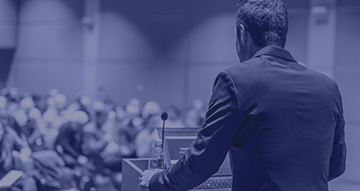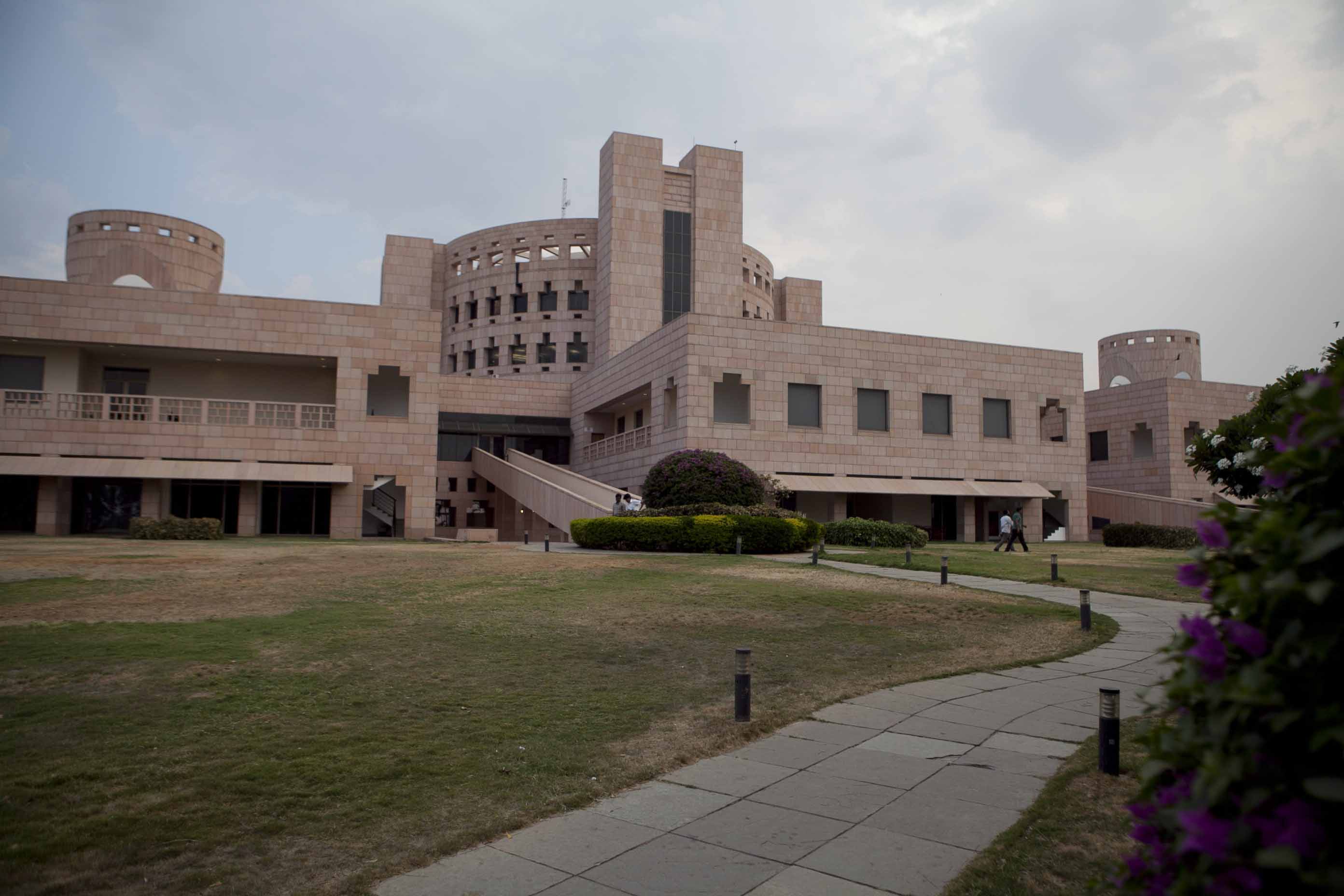Home
Developments in Artificial Intelligence (AI), particularly Machine Learning (ML) and its increasing use in the industry over the last few years provide strategy researchers with many opportunities.
The fourth “AI & Strategy” workshop intends to bring together a set of researchers interested in one or more of the themes described below through an annual meeting. This meeting will be held virtually on January 22 and 23, 2023, between 8:30 AM – 12:05 PM, ET (9:00 PM to 01:05 AM midnight Singapore time: 7.00 PM – 10:35 PM, India). The conference is sponsored by Srini Raju Centre for IT and the Networked Economy (SRITNE) at the Indian School of Business. As with last year’s conference, the three objectives of this conference are
- To provide a focused forum of scholars, students, and editors to seed and discuss work in the field of strategy that is contextually or empirically related to AI
- To provide a forum spanning both industry and academia to accelerate learning of how AI can transform organizations and their strategies
- To facilitate inter-disciplinary collaboration between computer scientists who are doing interesting work in AI/ML and strategy scholars, especially those interested in applying some of these techniques in their scholarly work.
Through this conference, we would like to continue to create an emerging body of knowledge that focuses on how the advent of AI/ML adds to a strategy researcher’s tool, understand how it will shape decision making, firm strategies, and alter competitive advantage. Hence, possible topics of interest include but are not limited to the following
- How AI influences organizational learning and decision making
- How the adoption of AI might shape and alter the competitive advantage
- How the advent of AI might influence the performance of incumbents in an industry
- New statistical methods that are appropriate for strategy research that utilizes AI or ML
- Management issues including ethics and culture that might influence the adoption of AI or the subsequent performance of firms that adopted AI.
The workshop will include virtual paper presentations for about 15 minutes, followed by a 5- minute discussion and a 10-minute Q&A on the paper.
If you are interested in attending the conference, please register at link:
Agenda
Day 1 January 22, 2023 – 8:30 AM to 12:05 PM, ET |
|
8.30 – 8.35 AM, ET |
Welcome Remarks |
8:35 – 9:05 AM, ET |
Keynote 1: The Declining Cost of Creativity Through Artificial Intelligence: Some initial thoughts Karim Lakhani (Harvard Business School) |
Parallel Track 1: Trust, ethics and AI This track focuses on the topics of trust, ethics, and artificial intelligence. The papers explore the impact of feeding AI tools with large amounts of data, whether trust in AI is increasing over time, the trade-offs between algorithmic transparency and worker precarity in digital labor platforms, and the role of regulatory attention in encouraging firms to disclose their AI ethics practices. Duration: 2 hours; 9:05 – 11:05 AM, ET |
|
9:05 – 9:25 AM, ET |
In Pursuit of Data: The Unanticipated Consequences of Feeding AI Tools Elmira Van Den Broek (Stockholm School of Economics) |
9:25 – 9:45 AM, ET |
A Mythic Belief Regarding Trust in Artificial Intelligence: Evidence Based on Longitudinal Studies Kyootai Lee (Sogang University) Wooje Cho (Seoul National University) Han-Gyun Woo (Sogang University) |
9:45 – 10:05 AM, ET |
Optimal Algorithmic Opacity in Digital Labor Platforms: Forfeiting (some) Autonomy to Sheild Against Precarity Bilgehan Uzunca (ESADE Business School) |
10:05 – 10:25 AM, ET |
Discussant Vivek Tandon, Fox School of Business, Temple University |
10:25 – 11:05 AM, ET |
Q&A |
11:05 – 11:20 AM, ET |
Break |
Parallel Track 2: Machine Learning as a research tool This track focuses on the use of machine learning as a research tool. The papers cover topics such as data fusion, strategic decision-making, coding governance, and innovation processes from online text. |
|
9:05 – 9:25 AM, ET |
The Blind Men and the Elephant: Introducing Machine Learning-Based Data Fusion Methods for Analyzing Multimodal Data and An Application of Measuring Trustworthiness Nan Jia (University of Southern California, Marshal School of Business) Xueming Luo (University of Southern California, Marshal School of Business) Zheng Fang (University of Southern California, Marshal School of Business) |
9:25 – 9:45 AM, ET |
Making the Most of Machine Learning in Strategy: Supervised Machine Learning, Causal Inference, and Regression Analysis Riitta Katila (Stanford University) Jason Rathie (US Air Force and AF Ventures) |
9:45 – 10:05 AM, ET |
CTRL-OSS: controlling Linux Simone Santoni (Bayes Business School) |
10:05 – 10:25 AM, ET |
Discussion led Bart Vanneste (University College London) |
10:25 – 11:05 AM, ET |
Q&A |
11:05 – 11:20 AM, ET |
Break |
11:20 AM – 12:05 PM |
Poster sessions (TBC) More is (not) always better: The complex link between AI orientation and firm performance Ann-Katrin Eicke (University of Münster – School of Business & Economics - Germany) Organizational Learning with Artificially Intelligent Agents – Towards a Typology Wagner, D.M (Institute of Technology Management (ITEM-HSG) N. Haefner (Institute of Technology Management (ITEM-HSG) Unlocking the Potential of AI in Strategic HR Decision Making Patrick Tinguely (ETH Zurich) Yash Raj Shrestha (ETH Zurich) Georg von Krogh (ETH Zurich) |
Day 2 January 23, 2023 – 8:30 AM to 11:15 AM, ET |
|
Parallel Track 1: Strategic implications of AI This track focuses on the strategic implications of artificial intelligence for businesses and organizations. The papers examine topics such as the limitations of data-driven exploration, the role of R&D alliances in the development and deployment of AI technologies, the relationship between a firm's AI orientation and its performance, the use of AI in strategic decision-making, and the economic impacts of AI- augmented R&D. Duration: 2 hours; 8:30 – 10:30 AM, ET |
|
8.30 – 8:50 AM, ET |
The Streetlight Effect In Data-Driven Exploration Abhishek Nagaraj (University of California at Berkeley) Gustavo Manso (University of California at Berkeley) Matteo Tranchero (UC Berkeley) |
8:50 – 9:10 AM, ET |
R&D Alliances in the Age of Artificial Intelligence Bowen Lou (University of Connecticut) Evan Rawley (University of Connecticut) |
9:10 – 9:30 AM, ET |
Economic impacts of AI-augment R&D Tamay Besiroglu (Massachusetts Institute of Technology) Nicholas Emery (Massachusetts Institute of Technology) Neil Thompson (Massachusetts Institute of Technology) |
9:30 – 9:50 AM, ET |
Discussion led by Riitta Katila (Stanford University) |
9:50 – 10:30 AM, ET |
Q&A |
10:30 – 10:45 AM, ET |
Break |
Parallel Track 2: Human-AI collaboration This session focuses on the theme of human-AI collaboration and features papers that examine the ways in which humans and AI systems can work together effectively. The papers cover topics such as using machine learning to augment human capital, developing an organizational learning model for human-AI interaction, and the impact of task composition on human responses to threats from algorithms. Duration: 2 hours; 8:30 – 10:30 AM, ET |
|
8.30 – 8:50 AM, ET |
Learning From Internal Mobility: A Machine Learning Approach To Augmenting Human Capital Nikhil George (Heinz College, Carnegie Mellon University) Ramayya Krishnan (Heinz College, Carnegie Mellon University) Rahul Telang (Heinz College, Carnegie Mellon University) |
8:50 – 9:10 AM, ET |
An Organisational Learning Model of Human-AI Interaction Charles Wan (Rotterdam School of Management) Helge Klapper (Rotterdam School of Management) Ting Li (Rotterdam School of Management) |
9:10 – 9:30 AM, ET |
I had one too many: How task composition affects the response of humans to threats from algorithms Sreevathsan Sridhar (London Business School) |
9:30 – 9:50 AM, ET |
Discussion led by Victoria Sevcenko (INSEAD) |
9:50 – 10:30 AM, ET |
Q&A |
10:30 – 10:45 AM, ET |
Break |
10:45 – 11:15 AM, ET |
Keynote 2: Artificial Intelligence in Management: An Integrative Review and Research Agenda Sebastein Raisch (University of Geneva) |
All times are in Eastern Standard Time (EST) zone
Conference chair
Prithwiraj Choudhury (pchoudhury@hbs.edu)
Anand Nandkumar (anand_nandkumar@isb.edu)
Phanish Puranam (Phanish.puranam@insead.edu)





